The Third Age is a growing category among the Latino population in the UK, and the problems they face are a threat to their well-being. (The Prisma’s memoirs. March, 2014)
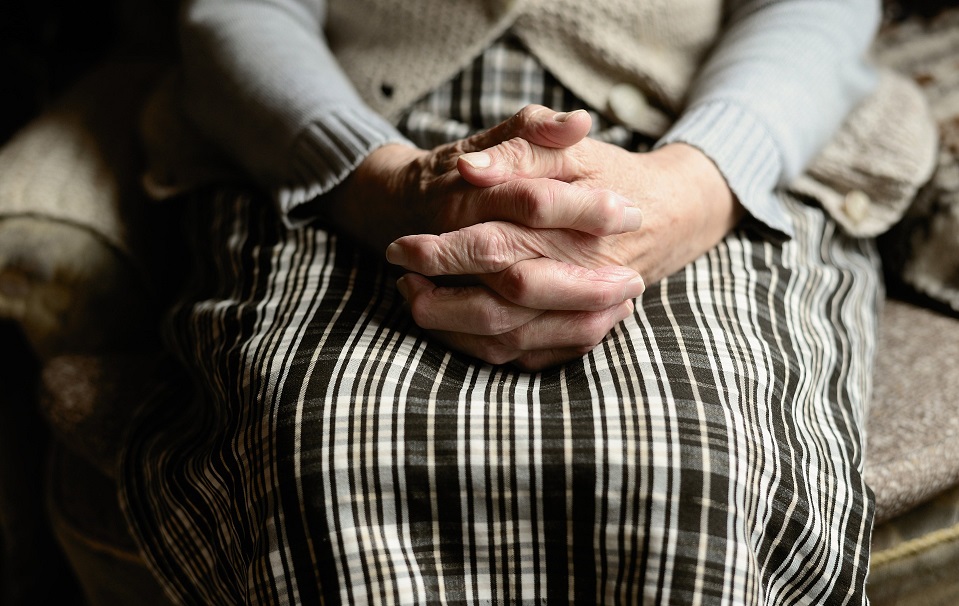 Noelia Ceballos Terrén
Noelia Ceballos Terrén
They are a minority but they embody the values and traditions of a whole community who are far from their own country. Old people are one more aspect of Latino-American immigration. They are the backbone that unites many families, but they are also used to being the ones who are most forgotten. They face a new culture and a new language, hard challenges which test their feelings in their mature years.
According to estimates there were 186,500 Latin-Americans residing in the UK in 2008, of whom 113,500 were settled in the capital.
The report produced by Queen Mary University in 2011 revealed that 2,577 of these immigrants were aged over 60, or about 2.3%.
In the period 2003-2008 the UK experienced a boom of immigration from Latin-America. This trend was reflected in the growth of the immigrant population of pension age, which increased by 39% between 2004 and 2008.
Although it is not easy to analyse in detail a community for which there are only official statistics, this reflects the fact that many older people from these countries were brought here by their children, so that the family could be together.
This is not straightforward for families, because they have to take on all the expenses of their older members for a period of 5 years.
During this time the newly-arrived has the right to access the English public health system, the NHS, but neither the
y nor their family is eligible for any state benefits.
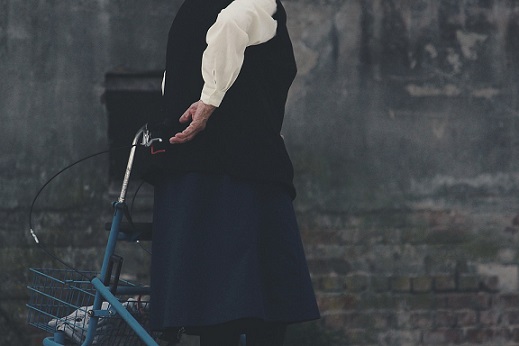 After this period older couples can receive £167 a week, along with Housing Benefit, a figure which is reduced to £125 a week for single people.
After this period older couples can receive £167 a week, along with Housing Benefit, a figure which is reduced to £125 a week for single people.
For those with physical disabilities, the British Government also provides an incapacity benefit (the Attendance Allowance), which varies between £212 and £316 a month. And to this can be added an allowance for a carer of the older person, which may be up to £239 a month.
Greater age: greater difficulties
Although they are close to their families, life for older people in the UK becomes harder for those who at their age must deal with all the obstacles linked to immigration.
And to talk about this it is necessary to know the situation from close up, very close up. Amada Silva is someone with first-hand experience, a Chilean woman who has lived in this country for more than 30 years, a period during which she has dedicated herself to helping Spanish-speaking immigrants adapt to their new situation.
The over-60’s is the group she knows best. In fact one year after arriving in London, in 1986, she founded the old peoples centre Los Años Dorados (The Golden Years), which she was involved with until 2009, when funding and other difficulties forced it to close.
In spite of that, Amada continues offering her help to Latin-Americans of over 50, from a base at Age UK in the London districts of Lewisham and Southwark. This is where every Wednesday she gives English classes and organises leisure activities such as singing and handicrafts to entertain the older people.
Amada Silva knows many stories, some sad some happy, stories of loneliness, of children who abandon or maltreat their parents, of older people who face alone the problems of being an immigrant.
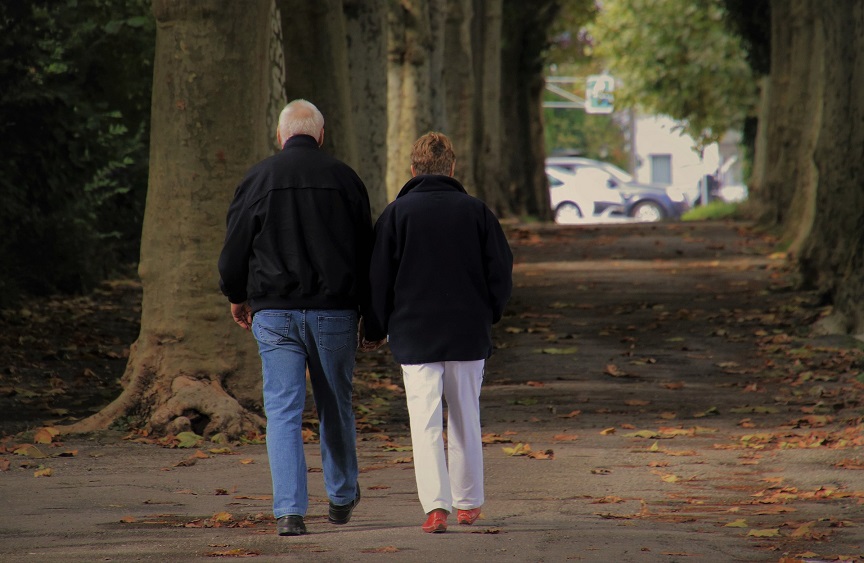 From time to time Amada visits hospitals to ask if there are any older Latin-American patients who are without friends or family. And she has seen many in London.
From time to time Amada visits hospitals to ask if there are any older Latin-American patients who are without friends or family. And she has seen many in London.
One case that comes to mind is an old Cuban woman, left alone in a hospital room, who told her that the only thing she wanted was a Teddy Bear. And she received it with the joy of a child, repeating that it was the only thing that her daughter would not succeed in taking away from her.
Older immigrants
“It’s difficult to talk about old people here because it’s very sad”. That is how she sums up a situation, which for many is one of loneliness, frustration and a failure to adapt to the new country.
Language is the biggest difficulty for any immigrant, but it becomes very serious for older people.
Their impotence in day-to-day situations like going shopping in the market, and having to ask for what they want by pointing, undermines the morale of older people, who “begin to feel they are stupid”, says Amada sadly. Older Latinos arrive here with values and manners which in many cases are in great contrast to English customs, explains the Chilean.
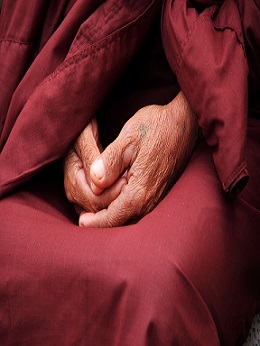 For example the absolute respect for older people, which Amada was brought up to accept, “is being lost”, she says, and this is especially shocking for grandparents who see that their grandchildren born in the UK are not being taught these values.
For example the absolute respect for older people, which Amada was brought up to accept, “is being lost”, she says, and this is especially shocking for grandparents who see that their grandchildren born in the UK are not being taught these values.
Nostalgia for the home is a feeling that all immigrants have. However, it is felt more intensely by this sector of the population, as Amada explains, “because they are far away from the countryside, the sunshine and the neighbours that they used to know. On top of that their difficulty with English makes these people withdraw and become old before their time”. In addition, integration with English people of the same age is not easy. The founder of Los Años Dorados recalls cases in which some older people arrived to take part in activities at English Day Centres, where the other members made no effort to talk to them, or spoke too fast. So once again there is a barrier, language, which “makes people feel small and depressed”. This is an inferiority complex which affects a population “who are often better educated”, in Silva’s experience.
Ill treatment at home
But there is another problem, which is not talked about, which makes the daily life of old people even more difficult. This is the treatment they receive behind closed doors in the family environment.
When they come to the UK their families know they are not going to work. The arrival of ‘the grandparents’ is very convenient for the parents, who give them the job of looking after the house and of their grandchildren, fulltime. This is “the unconscious way in which the children exploit their parents”, in Amada Silva’s opinion. Caring for the grandchildren is work, which although they do it happily, “makes them grow older”, she says.
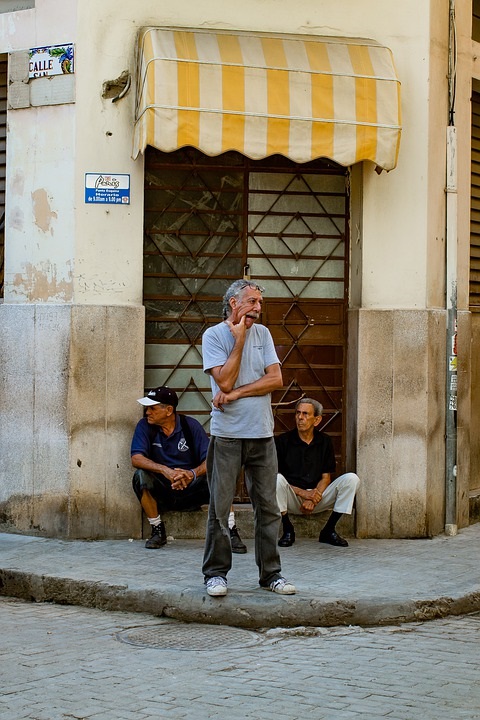 From her experience with older people, the Chilean knows that many of them never go out, and remain closed up indoors. “They don’t have time, not even to go out and walk around the block” she explains.
From her experience with older people, the Chilean knows that many of them never go out, and remain closed up indoors. “They don’t have time, not even to go out and walk around the block” she explains.
She remembers especially the trips that her old people’s centre organised, which were the activities which drew the most participants. This was because of these people’s wish to go out and take some fresh air, and have a break from their home environments.
But she tells how many of them who went on these trips were running the risk of being told-off by their children, who depended on them to look after their children at weekends. “That gives you an idea of how they are controlled” she says.
Abuses come from both children and children-in-law, who support themselves from the pensions of their elders, taking away their economic independence.
Talking about the maltreatment of older people, the founder of the Latin-American Elderly Project – another Latin-American centre for older people – said this in an interview with the magazine Refugee Women’s News, in 2004: “This is a problem which especially affects our older women – society is still quite machista in this respect, and older men don’t suffer this problem to the same extent.
Some of our women also suffer domestic violence. Often, they don’t get any help from their families: about 70% of our members receive all the help they get from us, not from their families”.
It is very difficult to give a figure for the number of ‘old ghosts’, as Silva calls them, victims of psychological abuse at home.
(Translated by Graham Douglas – Email: Ondastropicais@yahoo.co.uk) – Photos: Pixabay












.jpg)












